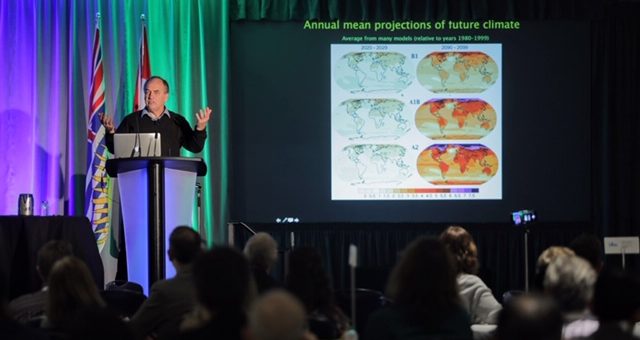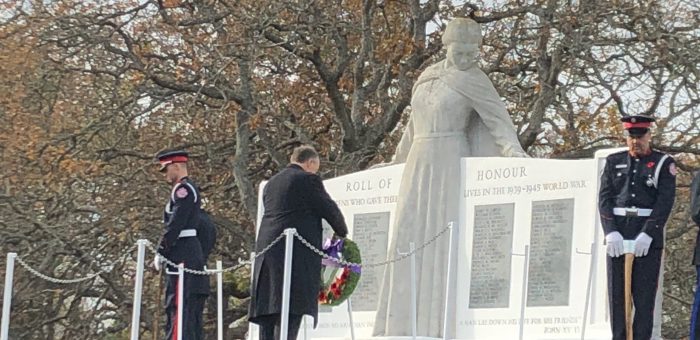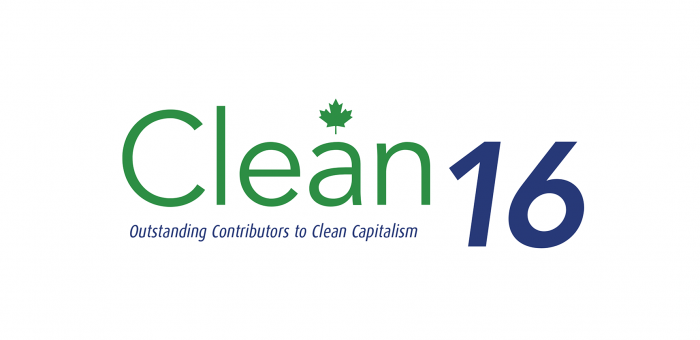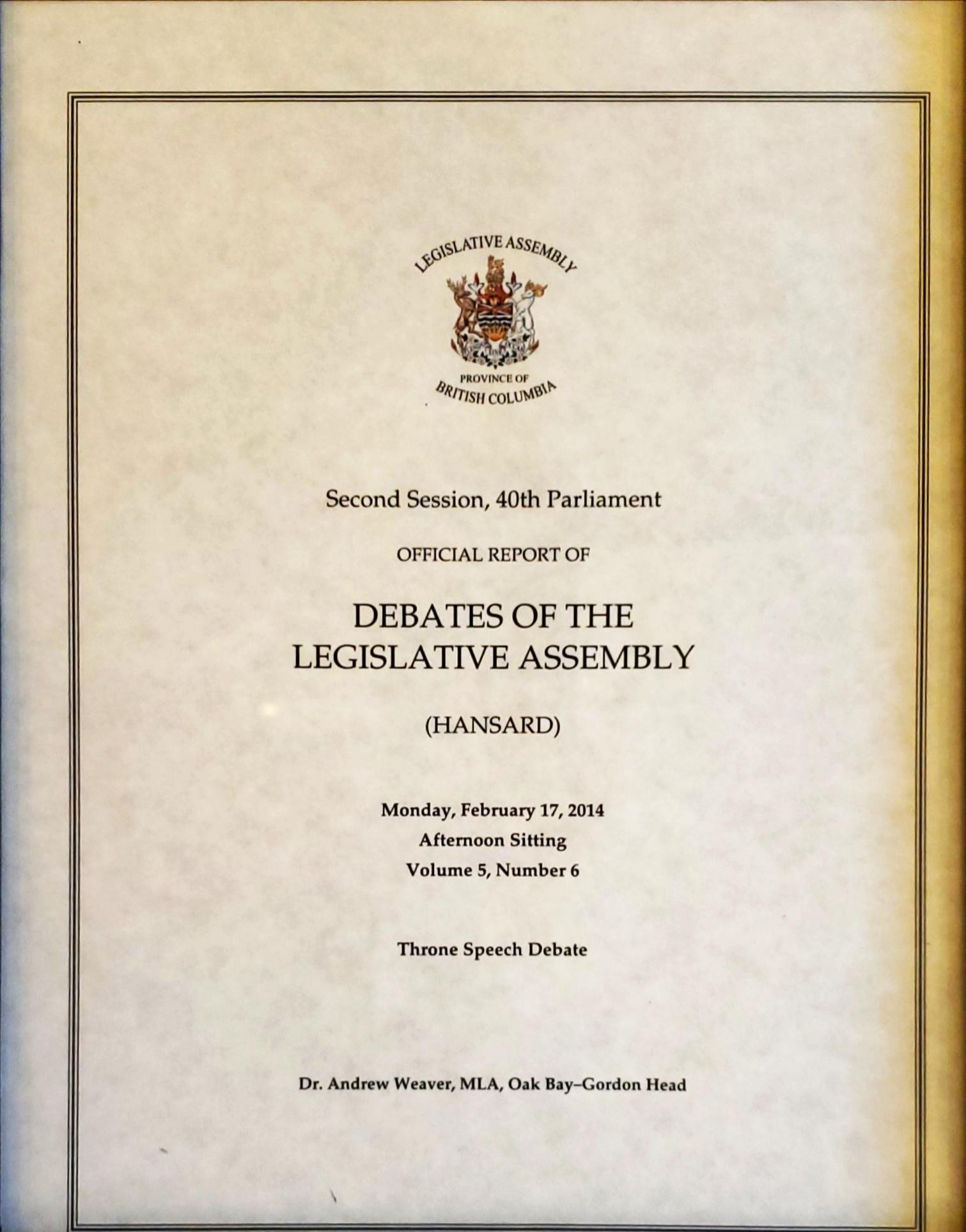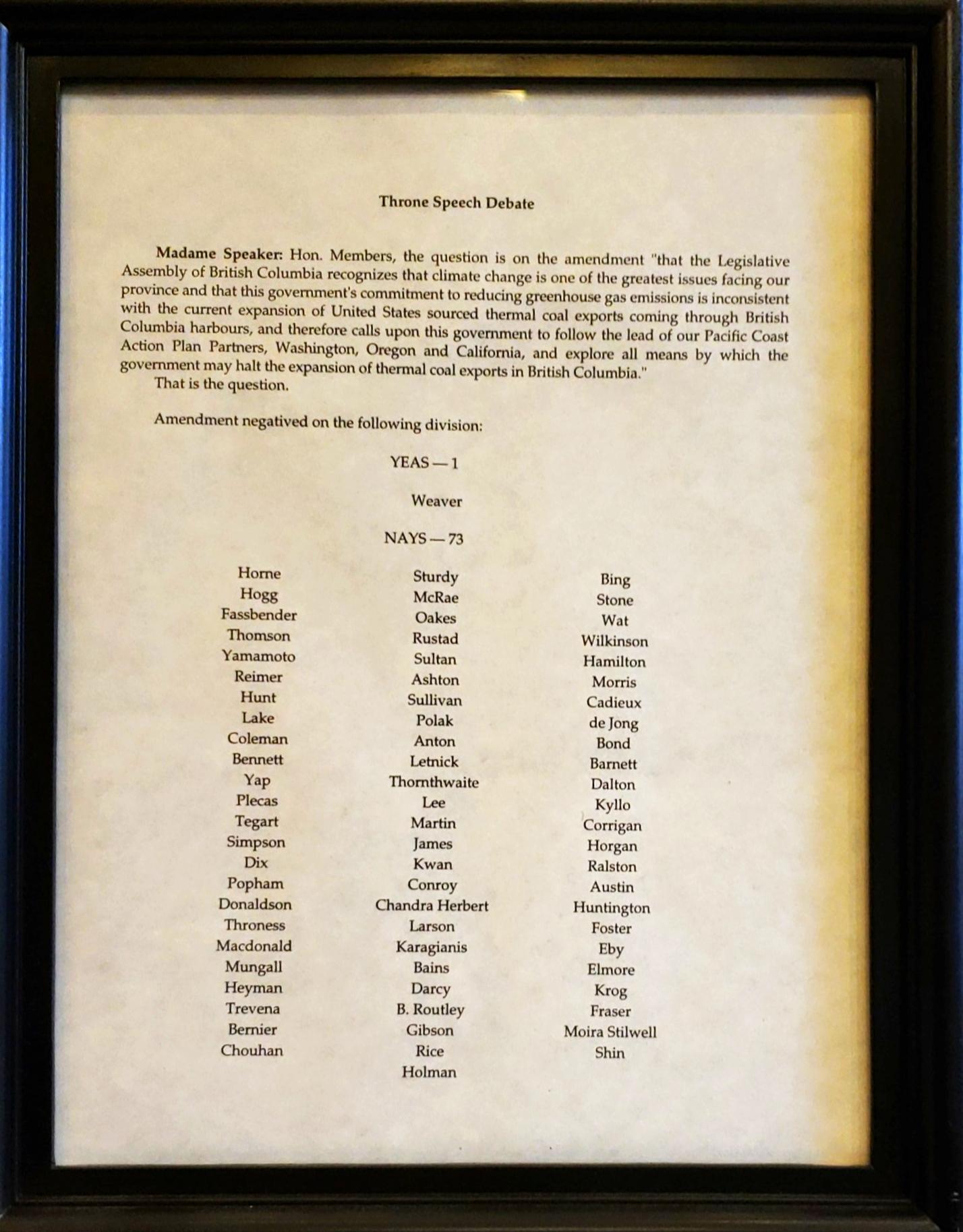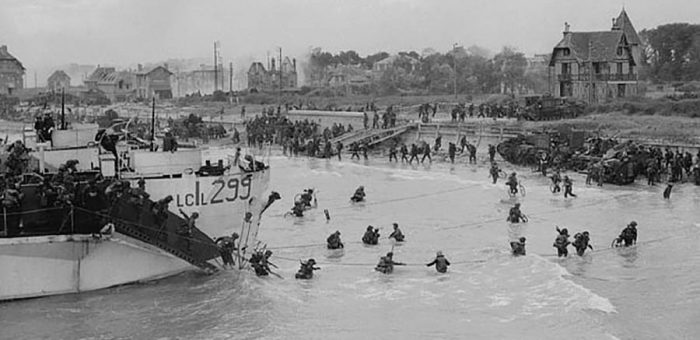Uncategorized
Clean energy in British Columbia: The Opportunity
On Friday, November 8 I had the opportunity to deliver a keynote address over lunch to delegates of the Clean Energy BC, Generate 2019 Conference. As evident in the video and slides of my presentation (reproduced below), I started the talk with a framing of what is happening in the climate system, why we should care about it and what has been done in terms of greenhouse gas mitigation. I then moved on to a discussion of potential opportunities in electrification and innovation within the emerging field of negative emission technologies.
Presentation Video
Slides Used in presentation
1.  |
2.  |
3. 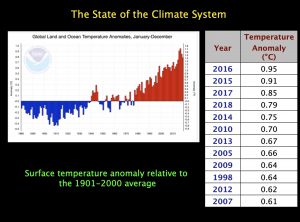 |
4. 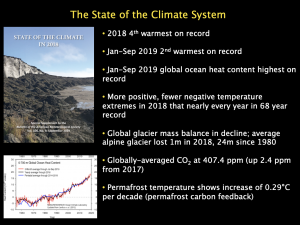 |
5. 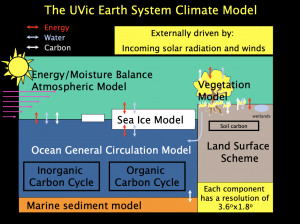 |
6. 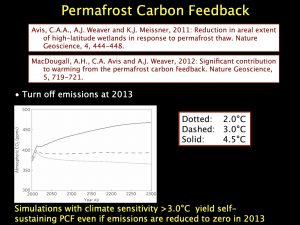 |
7. 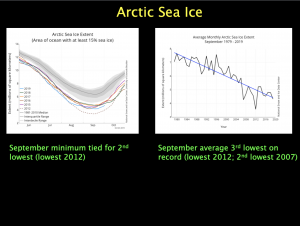 |
8. 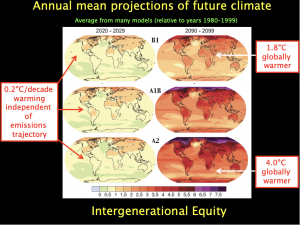 |
9. 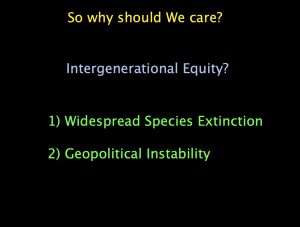 |
10. 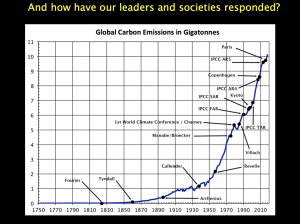 |
11. 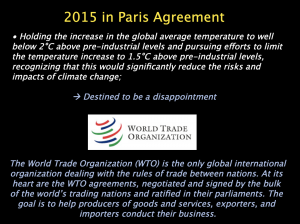 |
12. 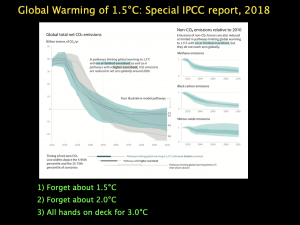 |
13. 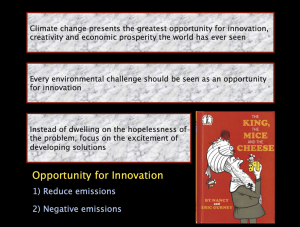 |
14.  |
15. 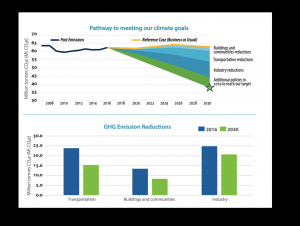 |
16. 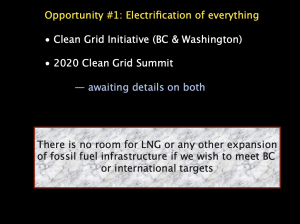 |
17. 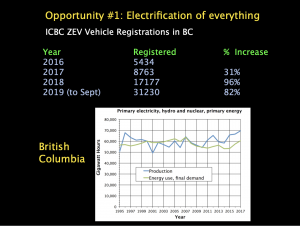 |
18. 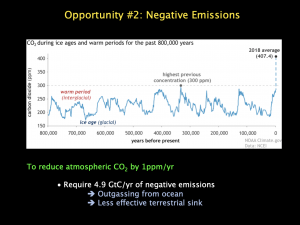 |
19. 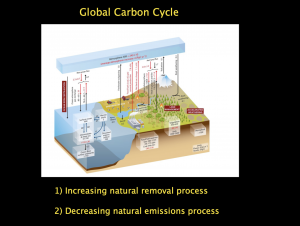 |
20. 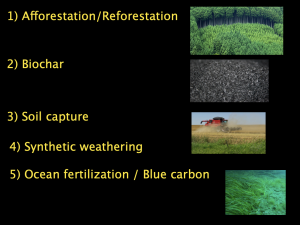 |
21.  |
22.  |
Statement on the importance of Remembrance Day
As this is the last day that the legislature will sit before Remembrance Day, the Premier rose to deliver a statement on its importance.
I rose shortly thereafter to provide a brief response, which I reproduce in text and video form below.
Video of Statement
Text of Statement
I would like to join the Leader of the Official Opposition and the Premier in spending some time to reflect upon what we will be experiencing on the 11th hour of November 11, in two weeks.
On the 11th hour of the 11th month in 1918, World War I came, officially, to an end. A year later King George V declared that November 11 would be Armistice Day. Ever since then, we’ve taken a time and a moment to reflect upon what those before us have actually accomplished, done and given to make us have the ability to live the lives that we live today.
I hear the stories from the member of the official opposition, who talks about his family. Earlier this week we had a very important moment in my family’s life, where we passed a bill memorializing Holodomor, a dark period in Ukrainian history. So many of our Canadian relatives have experiences through that.
To the Second World War. Many of us here will have ancestry in England. My father grew up as a little boy in Birmingham at a time when Coventry — the cathedral, as you all know — was bombed. They had a bomb shelter in their yard. His father worked building military planes. Outside of the house, they had smokestacks to fill the skies with black smoke so the bombers wouldn’t see the lights down below.
These are the stories that we have, but as time goes on, we begin to forget these stories. That is why November 11 is such an important day. It makes us all, each and every one of us, reflect upon what has happened so that we might collectively say: “Never again.”
As such, I think it would be entirely appropriate, hon. Speaker, with your leave, for all of us to take a moment of silence, in that we won’t be here together on that day.
Mr. Speaker: Thank you, Member.
Let us do that. A moment’s silence, please.
The power of collaboration: climate change policy now front and center in provincial political conversation
Today Minister George Heyman and I had the distinct honour of receiving Clean16 and Clean 50 awards from the Delta Management Group for our collaborative efforts that lead to the creation of British Columbia’s CleanBC economic plan.
As noted on the Clean50 website,
“Canada’s Clean50 annually offers recognition to Canada’s leaders in sustainability for their contributions over the prior two years.”
“The Clean50 Individual awards – or just “the Clean50” are selected from 16 diverse categories that transcend numerous industries, academia, different levels of government, thought leaders and advocates, and are based on accomplishments delivered over the prior two years. The leader in each of the 16 categories is also declared to be part of the Clean16, depicting those 16 Honourees as the top contributor in their respective categories.”
The citation for the award states:
“A climate scientist and a climate advocate walk into a Legislature… They may represent different political parties, but that hasn’t deterred these champions of the environment from close collaboration. The BC MLA and Minister for the Environment have worked together to design “CleanBC,” an ambitious economic plan to build a thriving, climate-responsible and climate-resilient economy through incentives and goals: transitioning to all zero-emission vehicles by 2040, demanding far greater energy efficiency in both new and existing buildings, and investing significantly in training workers for a low-carbon economy. The ultimate goal: a net 40% reduction in BC’s 2007 GHG emissions by 2030. BC once again leads Canada in the fight against climate change.
Dr. Weaver also introduced the Business Corporations Amendment Act (passed unanimously, the first non-government bill to pass into law in BC history), which provides a legal framework for businesses committed to pursuing a triple bottom line to incorporate as Benefit Companies. It is the only law of its kind in Canada.”
Unfortunately I was unable to travel to Toronto with Minister Heyman to accept the award due to my recent bout with vestibular neuritis. Nevertheless, I was able to prepare an acceptance video which I reproduce below.
In the government’s press release, as well as our own press release (reproduced below), both Minister Heyman and I emphasize the power of collaboration. We believe CleanBC and this award are evidence of what political leaders can accomplish when they work together. But that collaboration doesn’t end now.
For CleanBC to be effective, government must implement the first phase of emissions reductions and quickly identify how they will fill in the remaining 25%. And, it must be matched with legislated, ambitious accountability and transparency mechanisms. ‘Trust us’ is not good climate policy. That’s why I have been working with Minister Heyman on the Climate Change Accountability Amendment Act, to be tabled this fall. It will provide an evidence-based foundation to the work done by this government and all to come.
Acceptance Video
Media Release
BC Green Party Leader, Minister recognized for CleanBC collaboration
Climate change policy now front and center in provincial political conversation
For immediate release
October 3,2019
VICTORIA, B.C. – Dr. Andrew Weaver, leader of the B.C. Green Party, and George Heyman, B.C.’s Minister of
Environment and Climate Change Strategy, have received Canada’s 2020 Clean50 and Clean16 honours for
demonstrated leadership in sustainability through the development of CleanBC .
“Over the last two years, my team and I have been working with Minister Heyman to design CleanBC, our
economic plan to build a thriving, climate-resilient society. It has been the hallmark of our minority government
and will continue to be my top priority as we ensure it is fully implemented to reach our 2030 targets,” said MLA
Weaver. “CleanBC is an important starting point and our ambitions must continue to rise. It is time we reimagined
the climate crisis not solely as an environmental problem, but an incredible opportunity for innovation and the
advancement of our society.
“For CleanBC to be effective, government must implement the first phase of emissions reductions and quickly
identify how they will fill in the remaining 25%. And, it must be matched with legislated, ambitious accountability
and transparency mechanisms. ‘Trust us’ is not good climate policy. That’s why I have been working with Minister
Heyman on the Climate Change Accountability Amendment Act, to be tabled this fall. It will provide an
evidence-based foundation to the work done by this government and all to come.
“More than 100,000 British Columbians – many of them children- participated in last week’s global climate strike to
shame world leaders for their inaction and demand better. We need to prove that we hear them. We need to
prove that their BC government cares about protecting their future.
“Receiving this recognition is more than a personal achievement; it represents something much greater than one
climate scientist’s life’s work. Hanging in the B.C. Green office in the legislature is a framed official report from
February 17, 2014, that documents an amendment I brought forward to the Throne Speech debate. It reads,
‘…that the Legislative Assembly of British Columbia recognizes that climate change is one of the greatest issues
facing our province and that this government’s commitment to reducing greenhouse gas emissions is inconsistent
with the current expansion of United States sourced thermal coal exports coming through British Columbia
harbours, and therefore calls upon government to follow the lead of our Pacific Coast Action Plan Partners,
Washington, Oregon, and California, and explore all means by which the government may halt the expansion of
thermal coal exports in British Columbia.’
The amendment failed with 73 nays that day; I was the only yea.
“Today, that political conversation has changed. That photo is now historical record, but it is no longer our future.
Climate change is now a top concern of all British Columbians, and indeed all Canadians, and this minority
government is listening and acting.”
Minister Heyman says their collaboration is evidence of what political leaders can accomplish when they work
together.
“The important collaborative work to develop the real and measurable CleanBC climate and economic plan –
between Dr. Weaver and me and our two parties – is a clear demonstration that legislators can work together to
address critical issues and to respond to the urgency expressed by young people around the world demanding
that we act to secure a safer future,” Minister Heyman said.
The Clean50 awards are presented every year by Delta Management Group, an executive search firm for
professionals working in the environmental sector. Previous Clean16 award winners include Tamara Vrooman,
president and CEO of Vancity, Craig Ryan, director of Social Entrepreneurship at Business Development Bank of
Canada, and Matt Jamieson, president and CEO of Six Nations of the Grand River Development Corporation,
among many others.
Announced annually by Delta Management Group and the Clean50 organization, Canada’s Clean50 Awards
recognize those 50 individuals or small teams, from 16 different categories, who have done the most to advance
the cause of sustainability and clean capitalism in Canada over the past two years. The top recipients in each
category compose the annual Clean16.
“The 2020 Clean16 are truly leaders in sustainability in Canada. Both Minister Heyman and Dr. Weaver have
made significant contributions through CleanBC by working collaboratively to help make B.C. and Canada a better
place,” said Gavin Pitchford, CEO of Delta Management Group. “Canada’s Clean16 awards recognize these
achievements to support a low-carbon future that creates new clean growth opportunities and benefits people.
The competition for the top spot this year in every instance left us with many great choices – and to be selected
from amongst such a strong group of peers is truly a testament to the contribution Dr. Weaver has made to
helping make Canada more sustainable for all Canadians.”
CleanBC is a pathway to a more affordable, safe and sustainable future. CleanBC was developed in collaboration
with the BC NDP government and supports the commitment in the Confidence and Supply Agreement to
implement climate action to meet B.C.’s emission targets.
-30-
Media contact
Macon L.C. McGinley, Press Secretary
B.C. Green Caucus
+1 250-882-6187 | macon.mcginley@leg.bc.ca
From the sublime to the ridiculous: BC Liberals in a tizzy on the last day of the legislature
It’s been a week since the legislature rose for the summer and it’s taken me that entire time to muster up the energy to write about the BC Liberal antics on the last day of the session.
Those who have been following the daily proceedings of the BC Legislature will know that on Wednesday May 29, 2019 the Speaker decided it would be prudent to back up several computers in the legislature and store the data off site. While the BC Liberals spun themselves into a tizzy over what can only be described as normal and due process in light of the ongoing Auditor General and police investigations into the conduct of several senior legislative employees, their overall behaviour has left me dumbfounded.
The backups occurred after work to allow the employees to continue using their computers during the day while the legislature was sitting. Stories have emerged about how the Leader of the Official Opposition was hiding around corners and popping out to photograph the Speaker’s Chief of Staff as he walked around the building. When asked why the computers needed to be backed up, the Speaker’s Chief of Staff told the Vancouver Sun:
“[The Speaker] simply wanted to ensure that all records were properly stored. He said he recalled five instances in the past where information, documentation and evidence ‘vanished into thin air.'”
A Liberal staffer also slept in their office during the evening of May 29 to prevent anyone from entering out of apparent fear of some sort of ongoing Legislative Inquisition. And on Thursday morning, chaos ensued as the BC Liberals initiated an all out assault on the integrity of the Speaker. Those who read what follows will probably have the same questions that I have. What on earth are the BC Liberals afraid of?
Thursday morning started the same as it always does. Visitors to the gallery were introduced and then we moved to Members’ Statements. Each day the legislature sits, three government and three opposition MLAs give two minute statements in which they typically celebrate something or someone in their riding. On Thursday morning, the Leader of the Official rose and delivered a bizarre rebuke of the Speaker’s apparent actions. Ironically, he concluded his statement with these words:
“We must work to make this a better place to conduct the business of the people of British Columbia as the elected representatives of the people of British Columbia. Part of that involves the continuity of the democratic process. So question period must proceed. That is part of the democratic process. This House must sit, but this House must also sit until the air is cleared about the events of the last 24 hours.“
And then the Liberals proceeded to boycott the rest of their Members’ Statements. As such, a number of government MLAs and I scrambled to offer impromptu statements to fill the void that had been created. Mine was on the topic of global warming and intergenerational equity.
During the lunch break from 12:00 to 13:30 the BC Liberals continued their attack on the Speaker. First, the Leader of the Official Opposition offered up one of their own members to serve as a new Speaker if the BC NDP and BC Green caucuses would agree (we did not). Then, their house leader decided to hold a press conference wherein she released handwritten notes she had made at a House Leaders’ meeting with the Speaker the day before.
What’s remarkable about the release of the notes is that the day before, the three house leaders agreed that the BC Liberal house leader would be the note taker. But those same notes were never circulated among the house leaders for approval before they were publicly released. Our house leader, Sonia Furstenau, was incensed and immediately distanced herself from them in a hastily put together press conference we organized immediately after the lunch break on May 30.
But it didn’t end there.
The afternoon sitting was to continue with the debates on Budget Estimates for the Office of the Premier. Recall that I had risen on May 29 for 20 minutes to ask the Premier a series of questions concerning demand side measures that affect the price of gasoline. Initially I had requested a full hour of time as I had a suite of other questions that I had hoped to raise on a variety of other topics. In discussion with the BC Liberals (who we schedule time with) they were very adamant that I only be given 20 minutes as they had so many questions that they wanted to ask. There are battles that you pick in the legislature and this was not one of the ones I wanted to waste my energy on. As such, I agreed to rise for only 20 minutes on the Wednesday.
So you can imagine my surprise when I walked into the chamber after Sonia and I held our hastily put together press conference on Thursday to witness Ravi Khalon, the BC NDP MLA for Delta North, asking the Premier a series of questions. I subsequently learned that the BC Liberals had decided to boycott the rest of Premier’s estimates (and shut down debates in the other committee rooms too), presumably to try and force the house to adjourn before the Lieutenant Governor arrived later in the day to give Royal Assent to a number of bills. As such, the NDP and BC Green MLAs had to spontaneously fill the remaining time with questions to the Premier.
I took the opportunity to express my frustration with the behaviour of the BC Liberals (see jesting exchange video and text reproduced below). Seeing as I didn’t have any background research with me, I could not ask the more detailed questions I had originally planned to. Instead, and to kill a bit of time to allow the NDP MLAs to put together a speaking list, I followed up with two sports questions and one more serious open-ended question. In the latter, I asked the Premier if he could reflect upon the last two years and perhaps identify some of the high points that he believes are important areas where the government and the B.C. Green caucus have worked together for the betterment of the people in British Columbia (see text and video of Premier’s reflection below). I thought this question was particularly timely as it was the two year anniversary of the date that he and I signed the Confidence and Supply Agreement underpinning his minority government.
As the time approached when we were expecting the Lieutenant Governor to arrive in the precinct, the next stage of the BC Liberal antics got underway. After the passage of third reading of a couple of bills (that the BC Liberals did not support), BC Liberal MLA after BC Liberal MLA rose on a point of personal privilege. For the better part of an hour, virtually ever single BC Liberal MLA, including the Assistant Deputy Speaker (BC Liberal MLA for Coquitlam-Burke Mountain Joan Isaacs) read out a statement along the lines of:
“I rise pursuant to Standing Order 26 on a matter of personal privilege. I have become aware of behavior and conduct undertaken by the Speaker with respect to senior officers and employees of this Legislative Assembly that I believe to be improper and compromises the ability of those officers to independently perform their duties.
I have further become aware of activities undertaken by the Speaker, including the seizure of records, including electronic records, that I believe constitute improper conduct with respect to my rights as a member of this assembly and impede my personal freedoms as a member of this assembly.
Insofar as the Speaker serves as the presiding officer of this assembly, I wish to disassociate myself for all purposes, including any subsequent litigation from these actions, which I believe constitute a breach of the individual and collective privileges of this House and contempt for this House.“
While they proceeded to filibuster the closing of the session, the Lieutenant Governor was kept waiting.
At 18:05 the Lieutenant Governor finally arrived to a house void of virtually every BC Liberal MLA. All but three had decided to leave and boycott Royal Assent.
This was perhaps the most disgraceful and disrespectful behaviour I have witnessed in my six years in the legislature. Each and every MLA swears allegiance to the Crown and the Lieutenant Governor is Her Majesty’s representative in British Columbia. As the Lieutenant Governor walked in, it was obvious that she was visibly surprised by the absence of the BC Liberal MLAs. It was also obvious that the BC NDP and BC Green MLAs were visibly uncomfortable with what was going on. The Lieutenant Governor put on a brave face, gave Royal Assent to several bills (including one of my private members’ bills) and quickly left the building without the customary hand shakes and exchange of pleasantries with MLAs.
Looking back on this last day, it is clear to me that two things need to happen.
1) The BC Liberals, and in particular their Leader, need to offer a formal apology to the Lieutenant Governor for their disrespectful behaviour. There is simply no excuse for what transpired on the last day of the house. I honestly don’t know how Mr. Wilkinson sees himself as Leader of “Her Majesty’s Loyal Opposition“. There was nothing ‘Loyal’ about his party’s behaviour last Thursday.
2) Joan Isaacs needs to immediately resign as Assistant Deputy Speaker. Failing that, I will almost certainly bring in a motion to have her replaced in the fall. It is unconscionable that she would undermine the non partisan nature of the Speaker’s office by reading out the above statement while wearing her Assistant Deputy Speaker gowns in the chamber. This is now the second time that she broken longstanding tradition and worn a partisan hat in her non partisan role.
It’s unfortunate that the BC Liberals continue to behave the way they have been in the legislature. The province deserves an effective opposition that respects, not flouts, the integrity of our institution. Their response to the Speaker’s desire to protect data for ongoing investigations was over the top and positively bizarre. It leaves me wondering why?
Videos of Exchange
| Jesting exchange | Premier’s Reflection |
Text of Jesting Exchange
A. Weaver: My humble apologies to the member for Powell River–Sunshine Coast. There are some burning questions I have for the Premier, in light of the fact that I had requested an hour’s time of the Premier’s estimates. I was told by members opposite that I could only have half an hour, because they had too many questions to ask.
Now I see that they decide not to ask questions. Yet another example of us listening to them….
Interjections.
The Chair: Members, come to order.
A. Weaver: Not having them agree to one thing and not following through.
Interjections.
The Chair: Members.
A. Weaver: As the Leader of the Third Party, it is my right to ask questions. I respected the jurisdiction of the official opposition to have more time, because they had so many burning, urgent questions that they felt it was appropriate for me to rise at 6:30 for 20 minutes last night when I knew I had an hour.
I have three very important questions for the Premier. I’m sure all British Columbians want to know. To the Premier, who do you want to win the basketball game tonight?
Hon. J. Horgan: I’ve become accustomed to questions not necessarily related to the office budget of the Premier, so I’m happy to answer this question as well. It speaks to something that all Canadians are passionate about. I myself, was a university basketball player. I’m a big fan of hoops. I’m a huge fan of the Vancouver Grizzlies. Before that, the Seattle SuperSonics. They’re both gone now. Go, Raptors, go!.
A. Weaver: On this important line of question, I have, for most of my life participated in hockey pools. In fact, I won a hockey pool one. I won $10,000 once. It was quite remarkable. I was very pleased.
However, this year I had chosen Boston against St. Louis in the final, but I got knocked out in the first round. My question to the Premier is: who does he want to win the Stanley Cup this year?
Hon. J. Horgan: If I had consulted with community liaison member Blair Lekstrom who is very ably helping us with caribou issues in the Peace country, he would have said the Boston Bruins. He had the audacity to wear a Boston Bruins jersey into our meeting earlier this week.
I certainly couldn’t support that initiative because of the 2011 outcome in Vancouver, but I think St. Louis is long overdue. It seems an ideal place to send the Stanley Cup.
Text of Premier’s Reflection
A. Weaver: On a more serious note, I just would like to ask an honest question here. As the Premier will know, we’ve been together under the CASA agreement for the last two years. There have been low points and there have been high points. I’m wondering if he could reflect upon the last two years and perhaps identify to the Legislature some of the high points that he believes are important areas where the government and this B.C. Green caucus have worked together for the betterment of the people in British Columbia. Perhaps he could elucidate that for the members of the gallery there who would like to learn about some of the good work that has been done.
I can understand it will take the Premier some time to reflect upon this, because there is so much good work that has been done. I really believe the Premier might need a few minutes to reflect upon the good work that’s been done.
Hon. J. Horgan: I thank the member, my colleague in the CASA agreement, for his question. It has been two years plus a day since we signed the agreement, a historic agreement in British Columbia, that’s led to stable government, positive outcomes for British Columbians in every corner of the province.
It’s difficult to point to one highlight, but one I know that the member will be most satisfied with is the development of CleanBC, which was absolutely integral to the foundation of a climate action plan that leads the continent. He and the Green caucus were critical to making that happen. I know members on the other side of the House as well, leading the first carbon price in North America set by the former government…. Their enthusiasm has waned over time for that, but I know that they laid a solid foundation. I give full credit to Premier Gordon Campbell for having the courage to start that initiative. I’m excited that we’re here to take the next step and lead the country and, in fact, the continent in that regard.
When I think about…. Again, the member comes from the post-secondary sector, so he would also agree with me that eliminating fees for English language learning and adult basic education was also critical to reducing barriers, eliminating obstacles to people realizing their full potential. At a time when we have a skills shortage, it’s important that we get people back into the classroom so that they can get the skills they need to be full participants in the economy, for their families, for their communities and, in fact, for the province.
We also have done a number of initiatives to cap tuition fees, to ensure that we have eliminated interest on student debt, on B.C. student debt, which I think is something that would be applauded by all members of this House. One area that I’m particularly excited about, the member for Mount Pleasant, the member for Kootenay West and I were at Vancouver Island University in the first couple of weeks of our time in government — at Vancouver Island University in Nanaimo — announcing the tuition waiver for kids in care.
Of course, for those who are unaware of the program, that is an opportunity for those who have been in foster homes, have been wards of the state. When they age out, oftentimes they see an abyss rather than an opportunity. By waiving tuition fees, we’ve allowed kids in care to see hope in their future, to see opportunity in their future. That’s not just good for the individual. It’s good for the broader community. I know our colleagues in CASA were very supportive of that.
Arts and culture is another area that I’m very proud of. Reinvesting in the B.C. Arts Council, making sure that we’re doing everything we can to get the payback that we all see from arts and culture.
I’ve been to a number of film studios, in my time as Premier to see firsthand just the enormous number of jobs that we get in this sector. I know my deputy and I are ad idem on this question. We see electricians, carpenters. actors, extras — extras that get their big break by being at the right place at the right time on a Netflix film or a series or whatever it might be. That launches their careers.
Deadpool coming to B.C., not once, but twice and, let’s hope, three times. Probably the defining moment for me was just last week, Member, when I was visiting a studio in Vancouver that did the dragons for Game of Thrones. Now, not a lot of people know that. But the CGI for Game of Thrones was developed and designed in Vancouver, which had a whole host of other spinoffs for the community. Subcontractors creating more jobs, good high-paying jobs, whether it’s coders, whether it be artists, and that’s all happening here in British Columbia — not just in Vancouver, by the way, but also throughout B.C.
On the economy, of course, the member will know that we put in place an innovation commissioner to make sure that we’re talking about the economy of the future. We also, of course, are very mindful that traditional industries built British Columbia. We’re working hard to make sure that forestry, mining and other resource industries can prosper and flourish. Agriculture is very important to the member. He supports the agricultural land reserve. He supports strengthening tools like that for all British Columbians.
I know the member would like me to go on.
Interjection.
Hon. J. Horgan: You would? Okay. Creating a ministry…. I didn’t know I was filibustering myself, but here I find myself. It’s been a while. Excuse me.
On the housing side, the member is devastated, as I am, to see homelessness proliferating across B.C. But with modular housing programs, we’ve seen the hard-to-house and homeless finding a place to hang their hat and to start a new life, and it’s been transformative in places like Surrey. The Whalley strip was infamous, and now that’s been changed. Nanaimo. We’re working very hard on that. One of the largest tent cities in Vancouver Island’s history. No longer there. Service is in place for the people that have been moved into modular housing.
We’ve increased a whole host of other issues with respect to seniors. We’re demanding accountability for staffing standards in care centres. There’s more support for Shelter Aid For Elderly Renters, increased length of home support visits, capital funding to strengthen senior centres.
A systematic review of care centre staffing levels. This is something that the Minister of Health was absolutely pivotal on. We remember back to the turn of the century, when the government of the day was ripping up contracts, making it more difficult for seniors to find care facilities that were appropriately staffed with enthusiastic workers — caregivers that were not just coming to a job, but coming to care for our moms, our dads and our loved ones. An underrespected and underpaid area of our economy, and we’ve taken steps through the leadership of the Minister of Health to achieve that, with the support of the Green caucus.
We ended the disability clawback for transportation for bus passes. I know the member responsible for poverty reduction was the lead on that, but we had full support of the Green caucus in that regard. And a whole bunch of other stuff.
Anti-SLAPP legislation. I know the member and I talked about anti-SLAPP legislation in the first session. There were some challenges. A decision, a determination made in Ontario, made the bill that we were working on together on this side of the House a bit in doubt. We worked with the Attorney General, leg. counsel and the Green caucus to make sure that we could have anti-SLAPP legislation here British Columbia to protect those who are standing up for their communities.
We’ve made a whole host of other changes. The reduction of PST on electricity was absolutely critical to industry and something that should have happened a long, long time ago. That’s created more opportunities as well. I think there’s more here, but I think if the member has more questions, I’ll take that….
Responding to the Premier’s Statement on the 75th anniversary of D-Day
June 6th, 2019 marks the 75th anniversary of D-Day and the battle for Normandy. The Premier rose yesterday (the last day the Legislature sat before the anniversary) to deliver a Ministerial Statement to commemorate this historic event. I responded to this Ministerial statement and reproduce the video and text of this response below.
Video of my Statement
Text of my Statement
A. Weaver: I rise to echo the compelling words of the Premier. His passion and heartfelt words were very inspiring.
As we know, on June 6 it will be the 75th anniversary of D-Day and the Battle of Normandy. D-Day was one of the most well-known and important events of the Second World War, and Canadians played a critical role in this pivotal campaign. It changed the direction of the war, but it came at a terrible cost.
On June 6, 1944, the Allies launched a massive attack, with 7,000 vessels being used, 4,000 bombers and 3,700 fighter planes. More than 450 members of the 1st Canadian Parachute Battalion were amongst the very first to engage the enemy forces. A few hours later, 14,000 Canadian troops from the 3rd Canadian Infantry Division and the 2nd Canadian Armoured Brigade would land on Juno Beach, braving heavy fire for the Canadian soldiers, who were successful in capturing their shoreline positions and who endured some of the worst fighting over the next several days of the Normandy invasion.
Canadians suffered the highest casualties of any divisions in the British Army Group during the campaign, and 359 Canadians died on D-Day itself. More than 5,000 would die in the ten weeks of fighting that followed. More than 13,000 Canadian soldiers were severely wounded during this time. Mental and physical injuries that many would carry for the rest of their lives also occurred. More than one million Canadians would serve in the Second World War, and over 45,000 would lose their lives.
I stand today in humble recognition of their sacrifice, and I ask all members of this House to never forget the freedoms we have and the society we have come to enjoy. But this has come at a high cost.

